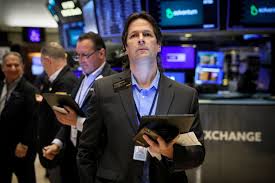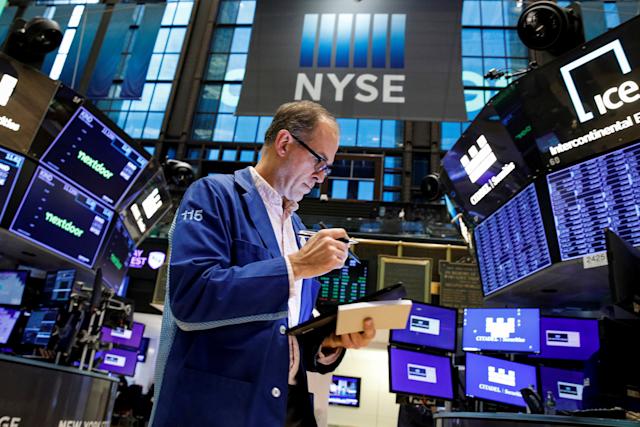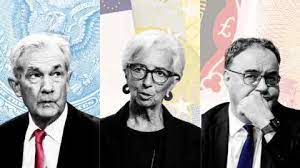The war in Ukraine has tended to increase uncertainty regarding inflation and growth prospects. When and with what consequences this war will end is pure speculation, but capital markets are expected to build a certain immunity to the headline risks in the coming weeks. The medium- to long-term consequences, on the other hand, could be significant. It is possible that we are at the beginning of a new bloc formation or a new Cold War. This would put a significant damper on globalization and further fuel higher structural inflation.
US equities closed out a volatile session mixed as gloomy guidance added to growing fears of a global economic slowdown. Those fears, along with a smaller-than-expected interest rate hike from the Bank of Canada, continued to feed hopes that the Fed might consider easing the size of its hikes after next week’s policy meeting. The S&P 500 and the Nasdaq Composite both ended in negative territory, dragged lower by market-leading tech companies, following results from Microsoft and Alphabet. The Dow Jones eked out a nominal gain. In the meantime, Europe saw widespread gains amid cautious trading ahead of today’s monetary policy decision from the European Central Bank.
Summary
- Asian equity markets mostly rose on Thursday, extending the previous day’s gains. Shares in Australia, mainland China and Hong Kong climbed higher. South Korean equities also gained despite weak profits from Samsung Electronics, while Japanese shares declined on earnings jitters.
- European and US equity futures were pointing to a positive start later in the day as investors look past disappointing tech earnings.
- Oil prices extended gains this morning after surging more than 3% in the previous session, driven by record US crude exports and a weaker US dollar.
- The Bank of Canada surprised the markets by announcing a smaller-than-expected rate hike, raising its benchmark interest rate by 50 bps compared to forecasts calling for a 75-bps increase. This is the second major bank in an advanced economy to raise rates less than expected in October after the Reserve Bank of Australia also slowed the pace of rate hikes at the beginning of the month.
- Housing data dominated the economic front yesterday in the US, with mortgage applications falling for a fifth-straight week and new home sales dropping amid the spike in interest rates in September.
- Credit Suisse this morning posted a massive quarterly loss, significantly worse than analyst estimates, as it announced a significant strategic overhaul in a bid to address underperformance in its investment bank and following a raft of litigation costs than have hammered earnings. The embattled lender posted a third-quarter net loss equivalent to $4.09 billion, compared with analyst expectations for a loss of around $576 million.
- Samsung Electronics reported a 31% drop in third-quarter profit on Thursday and said geopolitical uncertainties are likely to dampen demand until early 2023, as the global economic downturn slashed appetite for electronic devices. The company expects that the demand for its semiconductors may recover later next year, as new data centres and computers require more memory.
- Meta shares plunged 19% in extended trading on Wednesday after Facebook’s parent company issued a weak forecast for the fourth quarter and came up well short of Wall Street’s expectations for earnings. The company said revenue for the fourth quarter will be $30 billion to $32.5 billion, compared to expectations of $32.2 billion. Revenue fell 4% in the third quarter while the operating margin sank to 20% from 36% a year earlier. Overall net income was down 52% to $4.4 billion in Q3.
- Boeing announced an adjusted Q3 loss of $6.18 per share, compared to the estimated profit of $0.13 per share, as revenues rose 4.0% y/y to $16.0 billion, well below the forecasted $17.9 billion. The company said its results were impacted by significant losses on its fixed-price defence development programmes and that it remains in a challenging environment.
- Heathrow Airport reported on Wednesday a nine-month loss of £422 million and warned that it will be “a number of years” before demand returns to pre-pandemic levels. Europe’s busiest airport forecasts that between 60 million and 62 million passengers will have passed through its doors in 2022, which is down around 25% compared to 2019.






